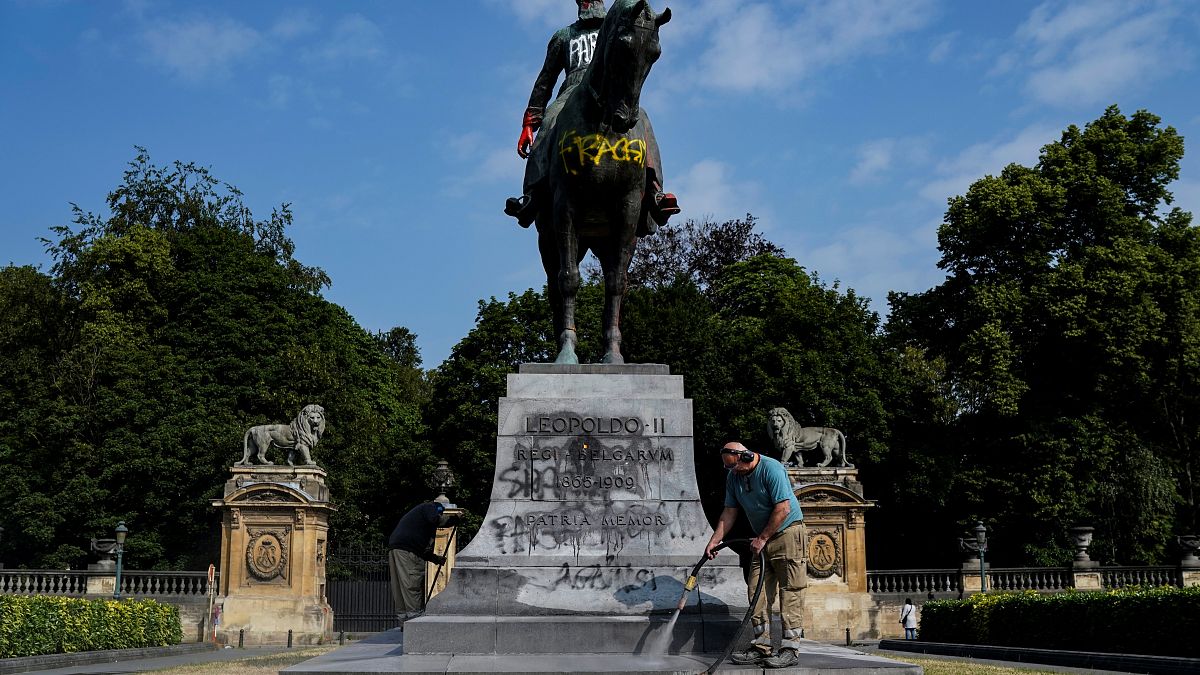A Belgian anti-racism group says the removal of #KingLeopold statues and other colonial-era monuments should be just the first step in a long-term anti-racist plan.
Statues of Belgium's former King Leopold II and other colonial monuments should be removed "as soon as possible" as the first step in a long-term plan in facing up to the country's past, activists say.
The Belgian Network for Black Lives Matter (BNFBL), which took part in last weekend's anti-racism demonstration in Brussels, dismissed suggestions that statues should be kept and better contextualised.
"Adding a short explanation to the monuments is not enough. The removal of statues would only be a beginning, how history is thought in Belgium needs to be reformed, decolonised," the group said in a statement sent to Euronews on Wednesday.
An estimated 10,000 protesters joined Sunday's demonstration in Brussels, part of the wave of outrage sparked by the death of African-American George Floyd at the hands of police in the US that has since developed into a global cry for racial justice.
Some climbed the statue of Belgium's longest-reigning monarch King Leopold II, who ruled from 1865 to 1909. They chanted "murderer" and called for "reparations" over the exploitation and brutality that occurred under his rule in what is today the Democratic Republic of the Congo (DRC). The French word "assassin" ("murderer") was daubed on the base.
A long-running debate over Belgium's colonial past has been sharply revived by the protests. But there is little sign of consensus or a speedy resolution.
Regional and municipal authorities in the Brussels region disagree over where responsibility lies, while in Wallonia south of the Belgian capital the heritage minister said removing statues of the colonial monarch would "be a way of denying history".
But, for BNFBL, the time has come for action.
"We agree that something must be done regarding colonial monuments, street names and other symbols which glorify Belgian colonisation," said BNFBL. "There is no pride in genocide. This must be done soon as possible.
"It is not a 'debate' whether or not to do something. You are either anti-racist or you aren't.
"We need to remember our common past correctly. Not doing so has led to the normalisation of having harmful racist symbols in our public sphere. Our government has been silent on these topics for far too long and silence regarding racism is not acceptable."
The collective wants the government to "invest in monuments that commemorate ancestral struggles against colonialism in Belgium". It also calls for an anti-racist action plan covering education, housing and other areas, as well as the cancellation of DRC's debts to Belgium and financial compensation to be paid for massacres.
"We don't see statues of Hitler in Germany, do we? We believe the lives of the victims of Belgian colonisation must also be respected and remembered. And these symbols do the opposite," argues BNFBL.
